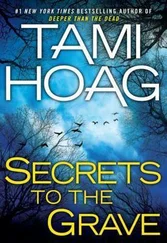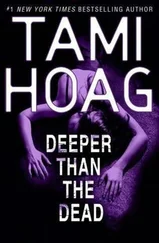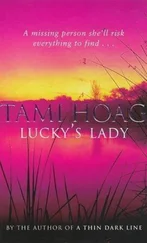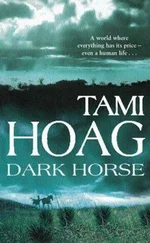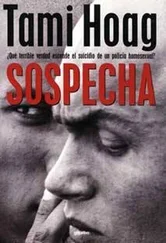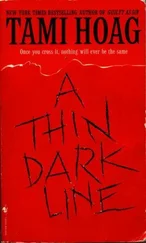“Well, he won’t be making any money at it today,” Mendez said. “She busted that camera in about five pieces.”
Tanner laughed an evil laugh. “Good for her. I’ll bet Roland about ruptured his spleen over that. He doesn’t like people touching his stuff. That’s how you can tweak him: touch his stuff, move it, handle it. He can’t stand it. He’ll blow a gasket.”
“My partner and I went into the house he rents in San Luis. It looks like no one has ever lived there.”
“That’s Roland. He’s got a place for everything and everything is in its place. It was some kind of incredible miracle that we got that blood sample out of his van. Eventually we’ll hang him with that.”
“Not soon enough,” Mendez said, pulling into the parking lot of the diner on La Quinta. The place was a favorite haunt of hospital personnel, EMTs, and cops. His tastes ran more to huevos rancheros with jalapeños and black beans, but for good old American grease, this was the place to come.
“I can smell it already!” Tanner said as she got out of the car. She started for the building like a bloodhound on a trail.
Mendez started after her, then spotted the van parked in the back corner of the lot next to the Dumpsters. He pulled up short.
“Wait.”
“What?” Tanner asked impatiently. “I’m starving!”
She turned around to look at him, but kept moving toward the diner.
“That’s Ballencoa’s van back in the corner,” he said. “I memorized the tag number.”
Tanner stopped in her tracks, then slowly began to move toward the van. “No shit? I guess pervs like pancakes and bacon too.”
Keeping one eye on the diner, Mendez followed her toward the van.
“There’s probably nothing in it,” Tanner muttered, raising up on tiptoe, as if that might help her see farther into the vehicle. “He doesn’t leave things to chance. I swear he probably wipes his prints down every time he gets out of it. He probably wipes his prints off the toilet seat when he puts it down.”
Mendez stole a look inside the cab of the van. If Ballencoa caught him near the vehicle, that news would go straight to Cal Dixon’s ear. His heart skipped a beat as the diner’s side door opened. A couple of doctors in surgical scrubs came out.
“We can’t go in the restaurant,” Mendez said. “If he sees me, he’ll flip. If he sees you, he’ll flip. If he doesn’t see either one of us, we can tail him.
“How hungry are you?” he asked Tanner.
“I could live on air,” she said, already starting for the car, as eager as he was to find out what Roland Ballencoa would do after his breakfast.
They drove around the block, finding a spot along the curb in sight of the diner, but not near enough to be conspicuous. Tanner opened her purse, pulled out a couple of Snickers bars, and handed one to Mendez.
“Breakfast of champions,” she said.
Mendez reached into the backseat and snagged a case with a pair of binoculars in it. It took a moment to get the focus right and to scan what he could see of the restaurant through the front window, but he finally caught a glimpse of Ballencoa in a booth toward the back.
“What’s he doing?” Tanner asked.
“Drinking coffee. Eating eggs.”
“Bastard,” Tanner muttered. “ I want eggs. Let me see.”
Mendez handed her the glasses, and they settled in to wait. He studied her as she stared intently through the binoculars. She was a funny little puzzle. He’d certainly never met another woman like her. He could feel the intensity of her energy just sitting there. She was like a bird dog on point, muscles taut, her focus on her prey. He had a feeling she probably did everything like that—full-on, balls-out—if she’d had balls. He didn’t know that many guys with that kind of intensity.
“Can I ask you a question?”
She didn’t break her concentration. “Shoot.”
“How’d you get to be a cop?”
“I went to the academy, same as you.”
“I didn’t mean that. I mean . . . you’re a woman—”
“Glad you noticed.”
“I know it can’t be easy,” he said, “working your way up the ranks—”
“Oh, well,” she said, “I slept with all my bosses.”
She shot him a look then, unable to resist seeing his reaction, and laughed out loud at the look on his face.
“Jesus, you’re serious,” she said. “It was a joke.” She turned back to the binoculars and her vigil, then added, “I only slept with a couple of them.”
“I am serious,” Mendez said, ignoring her last remark. “You picked a tough row for a woman to hoe. Why?”
“Beats digging ditches.”
“So does being a nurse or a teacher,” he said.
She sighed in resignation at his unwillingness to let her get by with glib answers. She turned and looked at him again, and Mendez could sense her weighing very carefully what she might say.
Finally she tilted her head to one side and gave a little shrug. “I like solving puzzles. I like helping people. I read a lot of Nancy Drew as a kid.”
Stock answers. She watched him from the corner of her eye to see if he would accept them. He decided he would—for now. She didn’t want to let him in. He imagined she didn’t let anybody through that gate easily—or maybe at all. But eventually he would try again. Danni Tanner would be his next mystery to solve—after Roland Ballencoa.

He was angry. He was agitated. He was excited. He had decided to stick to his routine because it calmed him somewhat. He went to the diner and sat in his usual booth, and ordered his eggs and toast and coffee. He didn’t eat meat, but he ate eggs for the protein. His usual waitress, Ellen Norman, twenty-four, with the curly strawberry blond hair and receding chin, waited on him. The routine helped, but not entirely.
On the one hand he was angry over the destruction of his camera. His camera was his instrument. What he did with it was his art. He never allowed anyone to handle his cameras or his lenses. Seeing that camera hit the ground, seeing the lens wrench off the body, had been like watching his own limb being torn off. Having it destroyed by Lauren Lawton—by a woman he just seconds before had control over—had infuriated him. The rage he had felt had almost overwhelmed his control. The prospect of losing control left him feeling agitated.
Control was essential. Control equaled success. Losing control meant making mistakes. Mistakes equaled failure. Failure was not an option. Failure meant going to prison. He wasn’t going to prison again. Ever.
He was an intelligent person. A highly intelligent person. He was certainly more intelligent than any of the cops who had investigated him. Over the years he had learned from his mistakes and perfected his methods.
Success was all about control.
Control was the sensation that had filled him as he had photographed Leah Lawton and her little blonde friend. They had been unaware of him. The control had been his as he captured their images: their slender tanned legs and arms, their budding breasts, the sliver of belly the blonde girl showed every time she raised her tennis racquet. Each separate piece of girl was controlled by him as he captured it on film.
Control was what he had felt as Lauren Lawton had raced toward him, her face twisting in anger. He had created that emotion. He had captured the images of that emotion and frozen them in time.
Every time he closed his eyes he could see her expression, the raw hatred, and that excited him. There was his challenge: to create that hatred and to manipulate it and turn it around on her. The potential power in that success was enough to give him a hard-on.
Читать дальше


